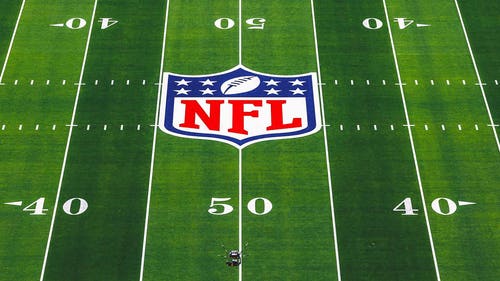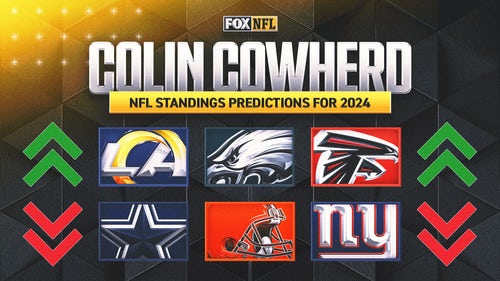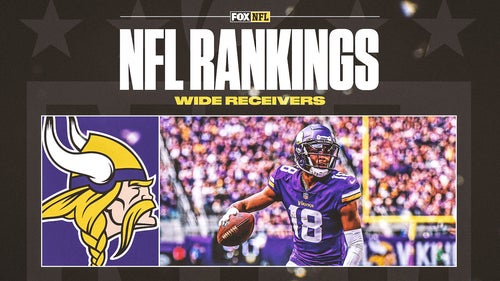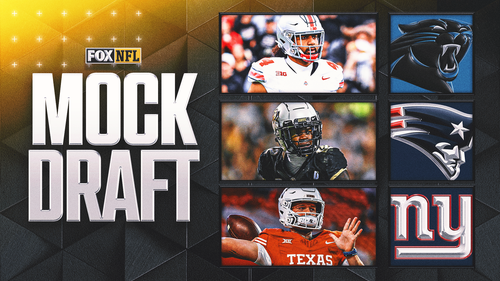
Washington Redskins Should Abandon Run Game When It Is Not Working
Dec 19, 2016; Landover, MD, USA; Washington Redskins running back Robert Kelley (32) is tackled by Carolina Panthers linebacker Shaq Thompson (54) in the third quarter at FedEx Field. The Panthers won 26-15. Mandatory Credit: Geoff Burke-USA TODAY Sports
The Washington Redskins continue to rely on a running game that doesn’t work and turn away from one of the league’s top passing games. If they want to make a repeat playoff appearance, they need to reconsider this philosophy.
Among the numerous things that went wrong in the Washington Redskins Monday Night Football loss to the Panthers was its slavish adherence to an orthodoxy dictating that an offense operates best when it strikes a balance between its running game and passing game. In the abstract, there’s some merit to blending both these phases of an offense together. It keeps defenses honest and sets up play-action passes that are the staple of most offenses in a pass-centric league.
But this oft-cited convention carries with it assumptions that may not otherwise to apply to everyone. Like the Redskins. And one of those is whether you have a running game in the first place to balance against your aerial attack. When you don’t, but pretend you do, you force onto your offense wasted plays that set you far behind the chains and into countless long-yardage downs. That was one principal feature of the Redskins offensive failure against the Panthers on Monday night. And it’s unfortunately a continuing shortcoming that’s invaded the team’s offensive gameplan over this season.
The Redskins faced a Panthers defense that was stout against the run, but had problems against potent passing games like the Redskins’. Instead of exploiting this Carolina weakness and, in turn, playing to its offense’s strength, the Redskins turned to an erratic running game the Panthers were well prepared for. Instead of diagnosing this inefficiency early on, the Redskins doctrinaire reliance on this mythical run-pass balance doomed them from them start. Robert Kelley, who has had some exceptional moments running the ball, didn’t have any against the Panthers tonight. His ineffective running put the team in unfavorable downs-and-distances and cost them in converting a badly needed third down.
Aug 26, 2016; Landover, MD, USA; Washington Redskins wide receiver DeSean Jackson (11) runs after a catch as Buffalo Bills defensive back Sterling Moore (41) defends during the first half at FedEx Field. Mandatory Credit: Brad Mills-USA TODAY Sports
The team needs to remember that it’s their passing game, not running game, that makes them successful.
Through it all, the Redskins completely forgot their offensive identity. This begins with Kirk Cousins, who’s one of the league’s top signal-callers this year and in line for one of the richest contracts come this offseason. He’s also aided by an elite receiving corps, consisting of Jordan Reed, DeSean Jackson and Pierre Garcon. Between these receivers and Cousins himself is more than $41 million in cap space.
The team cannot continue banking its fortunes on an undrafted rookie from Tulane to complement the passing firepower featured by this costly capital expenditure. If Kelley is turning in an effective game, a balanced offense is not just an ideal to aspire to, but a necessary part of an offense that can yield an assortment of benefits to the entire team. But when it’s clear he can’t do that, it’s folly to insist on pursuing a bankrupt gameplan like that.
This is not to say, of course, that the team shouldn’t start a game feeding the ball to Kelley to determine his efficiency early on. The Redskins, however, have to quickly appraise how Kelley and the running game will contribute to the gameplan. If he can’t, it can always resort to short passes to substitute for run plays in much the same way it did when Cousins began his blockbuster production down the stretch in 2015. In doing so, the Redskins tap into the source of their offensive production and justifiably live and die with a strategy that doesn’t wait for a running game that often never materializes.
Dec 19, 2016; Landover, MD, USA; Washington Redskins quarterback Kirk Cousins (8) throws the ball as Carolina Panthers linebacker Thomas Davis (58) chases in the second quarter at FedEx Field. Mandatory Credit: Geoff Burke-USA TODAY Sports
The Running Game Should Have Been Abandoned Monday
Unfortunately for the Redskins, they didn’t buy into this philosophy against the Panthers. By waiting for Kelley to hit a stride that didn’t show up against Carolina, the Redskins offense faced too many obvious passing downs and sputtered when Kelley’s lack of production sapped it of any rhythm. Still, even those like Jay Gruden often preach that there’s virtue in low production runs, explaining that they can’t rely on Cousins to throw the ball 30 or more times a game.
More from Riggo's Rag
But why not? Cousins played his way in to a $19.95 million franchise-tag payday by doing that last season. And he’s done so this season as well, as the secondaries of the Bengals and Cowboys can attest to. The key again isn’t forcing Cousins to throw downfield on every pass, but to use short passes to spell a running game that may not work on a given week. And, more importantly, the key is avoiding ritual acceptance of a run-pass philosophy that, in a particular game, doesn’t work for the Redskins.
Essentially it boils down to one thing. If the running game is working, keep tapping into it. If it’s not, cut it loose.
Ralph Waldo Emerson once observed that “A foolish consistency is the hobgoblin of little minds.” Emerson’s reference to consistency here is the fabled quest for offensive diversity that many uncritically accept as gospel. When the running game is producing, that consistency is wise. But when it’s not, it’s foolish. And where it’s foolish, you’ll find a lot little of “little minds” to go around – like Monday night.
Will that describe the offensive think tank of the Redskins from here on out?
Let’s hope not.














































































































































